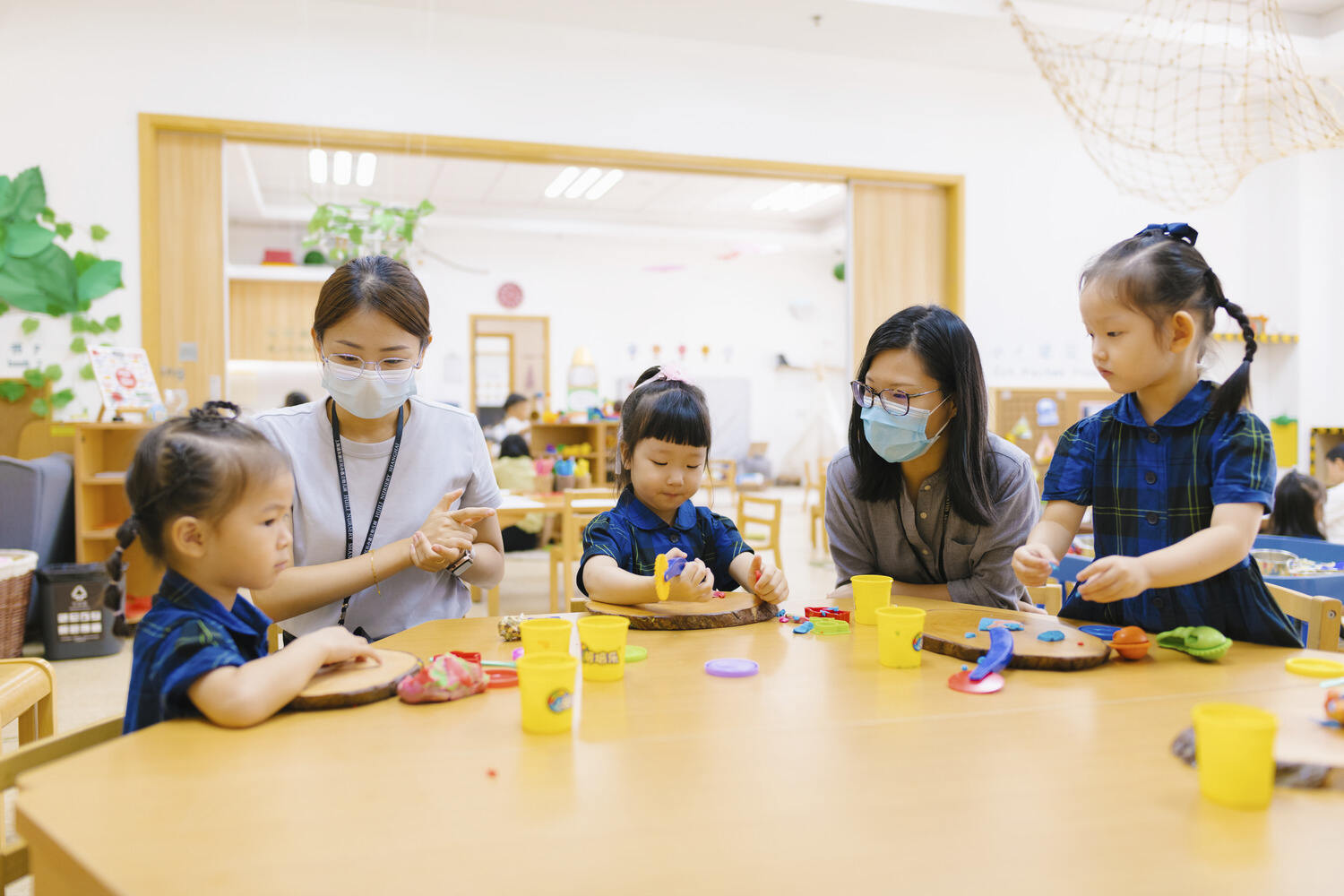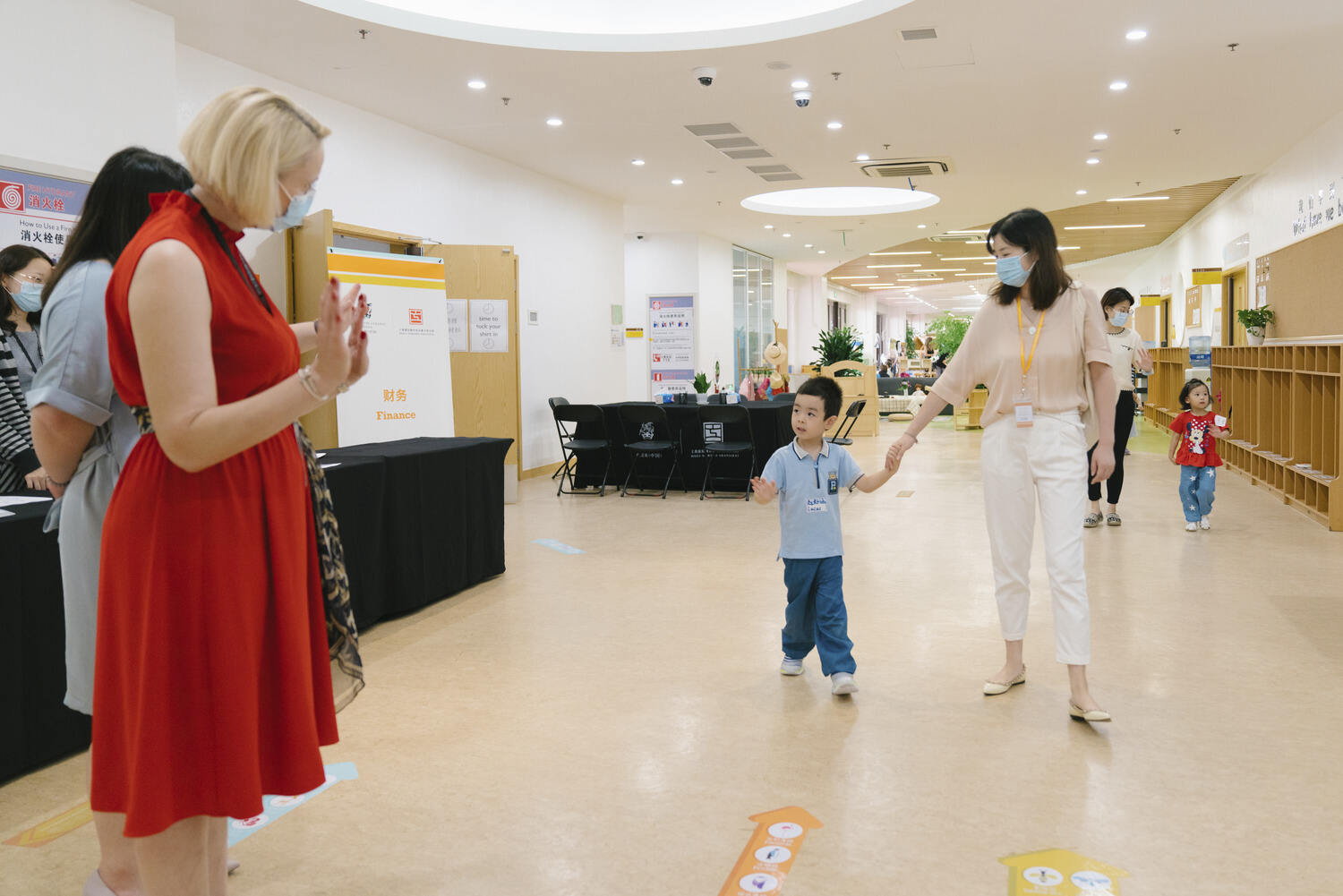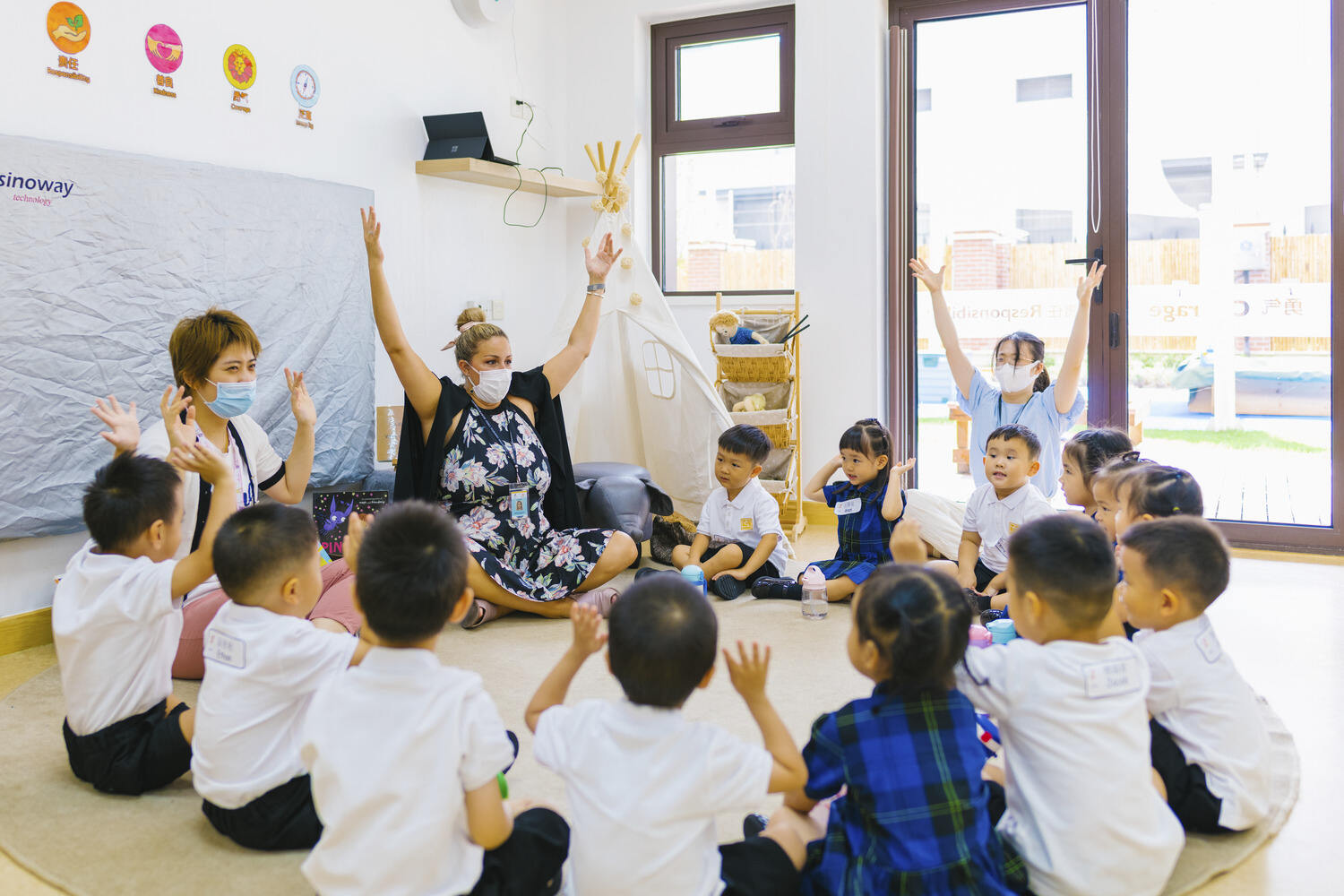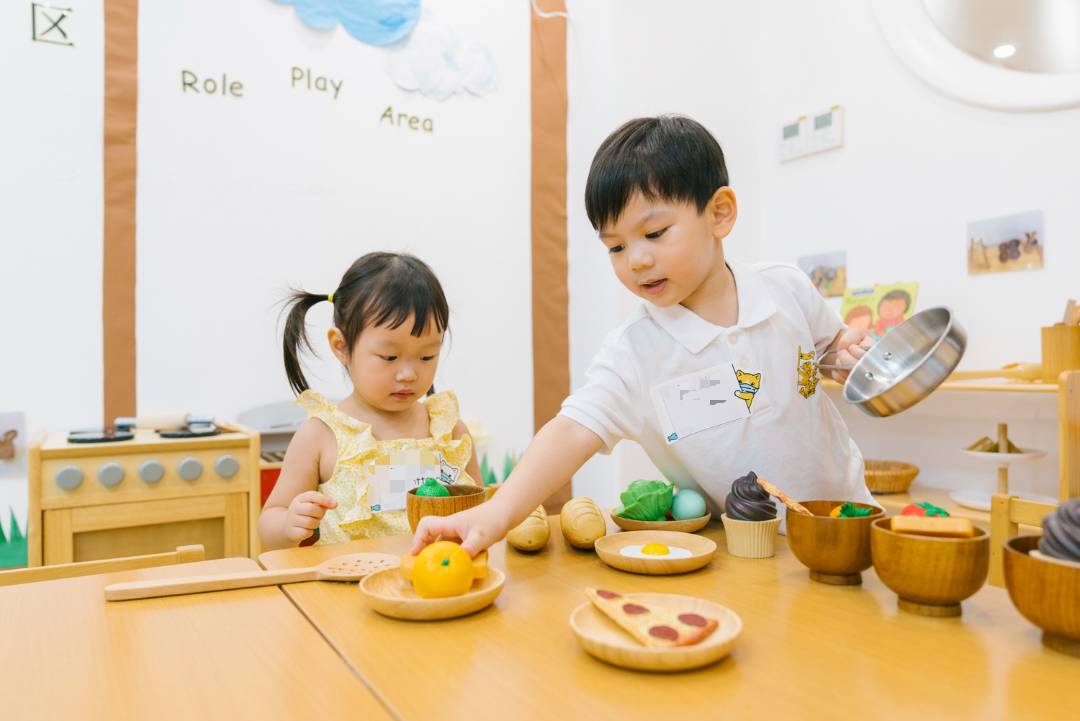
The early years in every child's life is a precious and critical stage in their personal, social and emotional development. It is also the time they typically attend Nursery and begin their important educational learning journey. This is an exciting and inspiring time for children as they meet new teachers, friends and familiarise themselves with their new learning environment.

However, new surroundings can sometimes induce anxiety in some children. This is entirely normal and is a natural stage as they become more independent and confident.
To help pupils settle well into nursery life Hiba Nursery team focus on every unique child and their wellbeing and involvement. The highly experienced team support all children to feel comfortable in the immersive bilingual learning environment and help them to develop positive relationships with their peers.
Alleviating separation anxiety
During the settling in transition period at nursery, your child may face anxiety associated with being away from you for the first time. This is totally normal and not something to overly worry about.
The experienced team are here to help our pupils be more comfortable as they learn to be confident away from their parents. At the beginning of this process we invite parents to join us in the nursery. Gradually parents’ presence will be reduced from half a day to a few hours. Eventually, your child will feel confident and independent and support from parents in the classroom will be reduced.

When in the nursery, we ask that parents to encourage their children to interact with teachers and classmates so they can adapt to their new environment sooner. Every child is different and unique, so your classroom teachers will offer specific guidance designed to support your child if they are experiencing anxiety during this time.
To support your children to feel comfortable and secure during their stay, we recommend the following at home:
Read picture books, stories and nursery rhymes together to familiarise them with the kinds of activities we will be doing with them in the nursery.
Help your child mentally prepare for nursery by talking about it with them. Remind them that you will pick them up after nap time. Avoid being too persistent, however, especially if your child is sensitive or becomes upset when you talk about it.
Sensitivity and unusually emotional behaviour are quite normal for new pupils in the first few days at nursery. However, please be reassured that any persistent issues can be discussed with your child's teacher.
We ask you to put your trust your child's teacher. Your child will look to you for reassurance when they come into school and go into the classroom. With this in mind, please be positive and reassuring when separating from your child.
Adapting to the bilingual environment
Hiba Nursery provides children with an immersive bilingual environment. A bilingual education will greatly improve their language aptitude and help them cultivate a multicultural outlook.
The nursery will leverage the guiding role of the Chinese-speaking teacher for the first few days. This will help them adapt to the bilingual setting. Moreover, we will encourage the more outgoing classmates or those who have already been exposed to English to interact and communicate with the English-speaking teacher. They also help other pupils in their English language learning.

The nursery integrate English learning into lessons and games so they can learn and use the language in a supportive and encouraging environment.
We also encourage parents to play an active role in the child's English learning by reading English-language books with them.
The acquisition of Chinese or English takes time. There is no need to rush your child as this may make them feel anxious and slow down the learning process.
Getting to know our classmates
It is helpful for pupils to build their friendships with their classmates early on. Our teachers are keen observers of every child and provide patient guidance in this capacity. .
As the new academic year begins, our pupils will participate in activities that support making new friends and encourage interaction. These games include passing the ball or 'Finding Friends', our game of self-introduction.

Pupils will be encouraged to engage in variety activities in small groups which will encourage them to collaborate, cooperate and build rapport with their classmates.
They will also participate in more physical games, like running races, duck-duck-goose and tug-of-war to inspire team spirit and encourage physical activity.
Moreover, children will have the opportunity to share what is happening in their lives with their teachers and classmates. This will develop language aptitude, build self-confidence and help them to learn more about their new friends.
Help them cultivate positive age-appropriate life habits, such as using cutlery and dressing independently;
Help them establish a sense of ritual. When they reach developmental milestones, give them a symbolic gift, such as a toy they like, to make them feel respected and a sense of pride in growing up;
Maintain communication with the nursery and follow our official WeChat and weekly newsletters to stay up to date on what's happening at the nursery;
Actively participate in child-parent activities organised by the nursery. Support your child to feel valued, loved and cared for.
Please remember it is natural to worry about your child when they join nursery. This is an important step towards become more independent. Our experienced team are here to guide you step-by-step as we work in partnership to support our youngest learners.